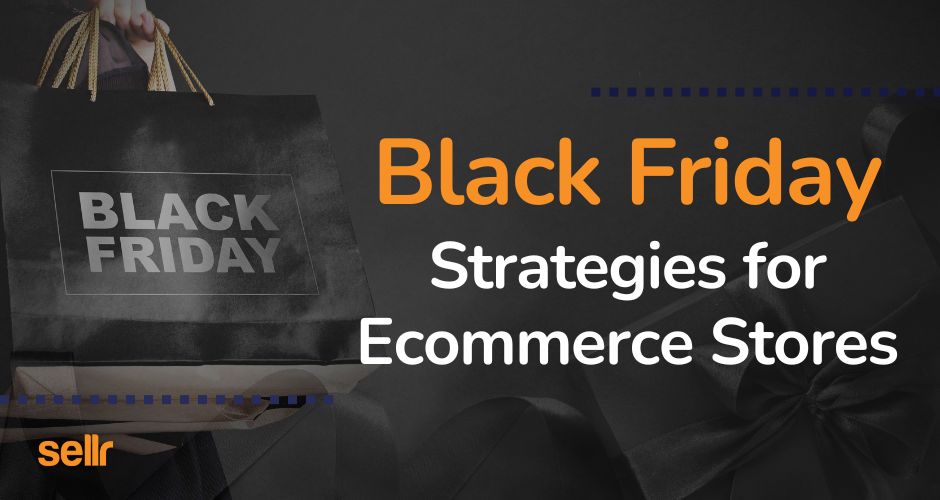By Mark Elward, Chief Commercial Officer at Huboo.
Since arriving in Europe almost a decade ago, Black Friday has grown to become one of the biggest online sales events of the year. But in 2021 the event was fraught with global supply issues, labour shortages and increased freight charges.
One year on and the situation has changed considerably. Most notably, the flow of trade between different countries has eased up, meaning that supply issues have largely been resolved. But the picture is far from rosy – the cost-of-living crisis means that retailers are facing ever-increasing financial overheads, while at the same time their customers are restricting spend to help combat spiralling costs.
Yet despite this highly challenging financial context, it’s predicted that 2022 will be the biggest Black Friday in history. So the question is, how can retailers leverage this global event to increase revenue, while tackling the financial pressures they face? Here are some top tips on how retailers can best prepare their business to maximise sales opportunities:
Use sales data to make smarter predictions
A deep dive into digital sales data is always a hugely valuable exercise, and one that online retailers should only skip at their peril when planning for Black Friday. Crunching past data can help businesses better understand their previous product sales and likely future trends, helping retailers map out the most impactful sales strategy for a busy retail season.
And what about companies that have only recently started trading? As they may not have the luxury of enriched sales data to call upon, they can instead turn to a wealth of online data sources to help them better estimate stock demands.
Poor forecasting may mean retailers either have insufficient stock, leaving them unable to capitalise on the full potential of Black Friday, or they may find themselves stuck with surplus stock in market. Tapping into sales data can support retailers’ demand predictions and allow them to plan stock accordingly.

Prioritise your sales channels (and manage them effectively)
Increasing numbers of savvy retailers are using a multi-channel sales approach in order to achieve greater reach and increase profitability. It’s valuable for these brands to look at how their product lines have already performed across different marketplaces. This will help them decide where to focus their sales push during Black Friday and throughout the peak end-of-year season.
To help with this decision-making, it can also be valuable for retailers to investigate the proliferation of similar products for online marketplaces. Product saturation will likely mean an eCommerce provider’s offering will be lost in the crowd, whereas a marketplace with a genuine product gap will increase the visibility of an online retailer’s products.
Also bear in mind that managing multiple channels can be time consuming and admin-heavy. To ease these headaches, eCommerce providers should look to implement technology that integrates channel management and fulfilment on a single platform, meaning that products from all sales channels and marketplaces will be accurately picked, packed and posted, with stock updated automatically across the board as items are sold.
Get stock into target markets early!
While the customs chaos caused by Brexit is largely under control this shopping season, retailers shouldn’t get complacent. The trading landscape today is far more unpredictable than the pre-pandemic, pre-Brexit world, so there are clear advantages to getting prepped as quickly as possible.
Getting products into markets in a timely fashion helps to protect retailers against unpredictable – and frustrating – border or freight delays. It’s not inconceivable that leaving things too close to the wire could see retailers missing out on the huge opportunities Black Friday brings.

Keeping costs down
Although the cost-of-living crisis means retailers are grappling with increased operating costs, there’s no escaping that their customers are also being hit by record-breaking rising prices. This means eCommerce businesses are restricted as to how much of their costs they can pass on without risking even the most loyal customer going elsewhere for a cheaper deal. It’s clear that retailers must look for ways to reduce the price point of their goods while maintaining profitability.
One way of doing this is by reconsidering fulfilment options. For the independent retailer with full responsibility for their picking, packing and delivery, the average cost of fulfilling a single order in the UK is £3. When you consider that this overhead increases with cross-border trade, it’s easy to see how fulfilment can erode an online retailer’s profit margins. eCommerce businesses should look to a tech-enabled fulfilment expert to not only reduce these financial costs, but also free themselves from the time-consuming activities that come with ensuring fulfilment is undertaken quickly and accurately.
Another way retailers can reduce the financial hit is by swapping out next-day or same-day delivery for economy delivery services. Moving towards this more affordable delivery option, which still falls within a customer’s 2-3 day expected time frame, is a quick and easy way to lower the price point of products, but be mindful that while shoppers expect prices to drop, they demand that service levels remain premium.
While the exact scale of this year’s Black Friday event remains to be seen, what is clear is that it is still a hugely important sales opportunity for retailers of all sizes to tap into. But success takes effort – businesses need to forecast, strategise and move fast to get their products in place for what looks set to be one of the biggest retail events of the year.

Mark Elward is Chief Commercial Officer at Huboo, a pan-European fulfilment technology provider committed to extending best-in-class, affordable fulfilment to retailers of all sizes, eCommerce providers and D2C brands.









